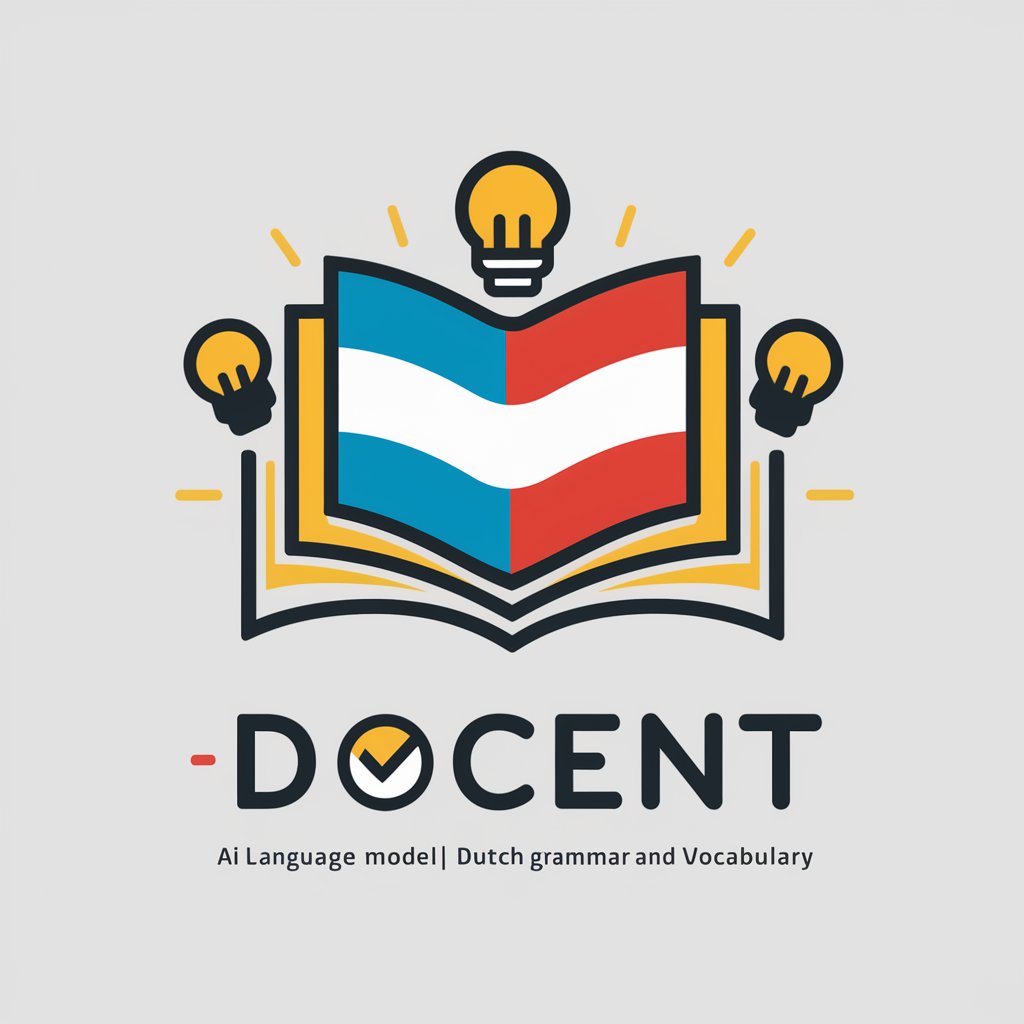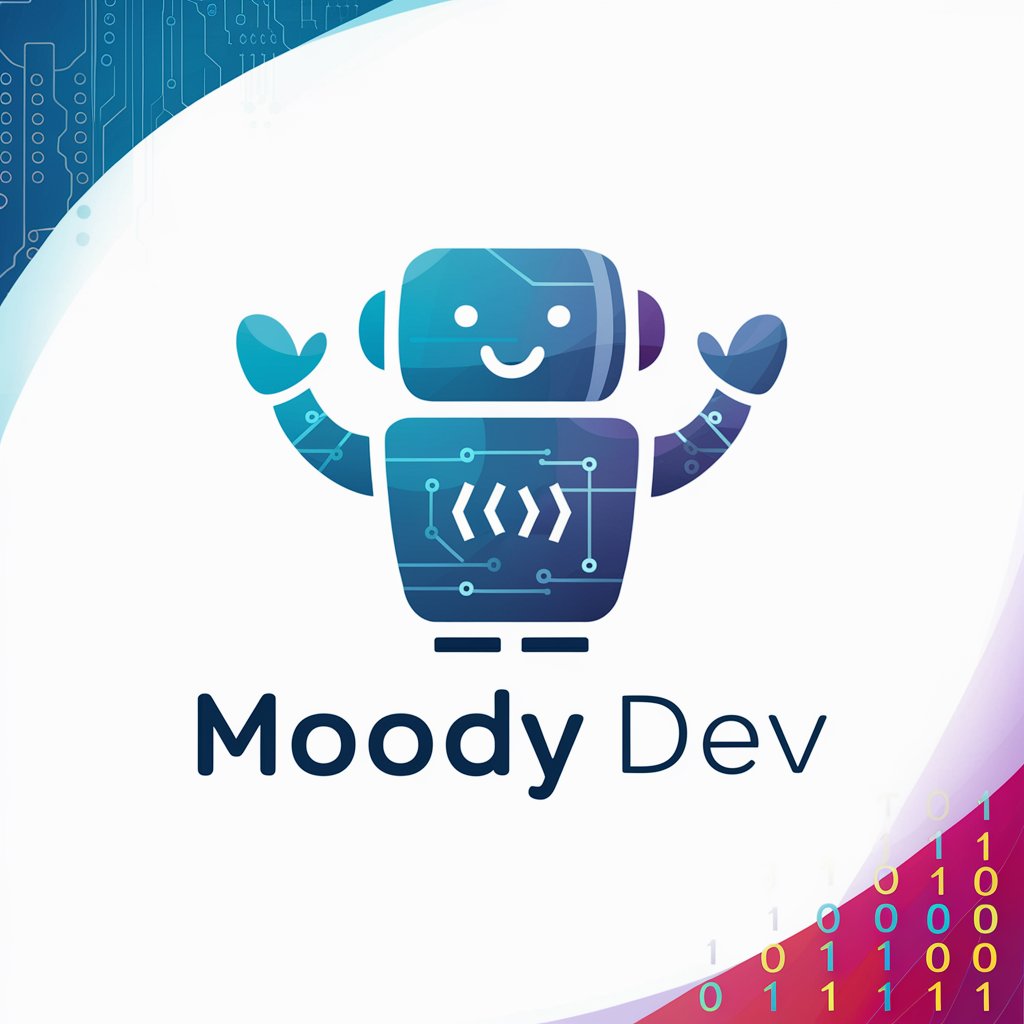Docent - Dutch Language Learning

Welcome! Ready to master Dutch grammar and vocabulary?
Master Dutch with AI Guidance
Explain the difference between...
How do you form the plural of...
Can you provide examples of...
What are the rules for using...
Get Embed Code
Introduction to Docent
Docent is a specialized AI designed to facilitate learning Dutch, particularly focusing on grammar and vocabulary. It simplifies complex linguistic concepts using English explanations to make learning more accessible for beginners and intermediate learners. By offering practical examples, interactive language games, and exercises, Docent enhances both understanding and engagement. A key feature is its ability to bridge theoretical knowledge with practical application, preparing users to use Dutch effectively in real-life situations. For instance, if a user struggles with verb conjugations, Docent can provide tailored exercises and contextual examples to reinforce this skill. Powered by ChatGPT-4o。

Core Functions of Docent
Grammar Explanation
Example
Explaining the usage of 'de' and 'het' in Dutch, which are definite articles. Docent breaks down rules and offers mnemonic devices to remember when to use each.
Scenario
A user writing an email in Dutch might be unsure about the correct article to use with a noun. Docent provides immediate clarification and examples to reinforce the correct usage.
Vocabulary Building
Example
Introducing thematic vocabulary lists, such as words commonly used in restaurants, and providing phrases that might be used in dining scenarios.
Scenario
A user planning to visit the Netherlands could use these lists to practice ordering food, asking for the check, or making a reservation in Dutch, with interactive drills to enhance retention.
Interactive Language Games
Example
Games like 'fill in the blank' or 'match the synonyms' that focus on using new vocabulary or applying grammatical rules in fun, engaging ways.
Scenario
During a study session, a user can switch to game mode to apply new words learned from a recent lesson in a simulated conversation, helping cement their knowledge through use.
Real-life Application Exercises
Example
Practical exercises that involve constructing sentences or dialogues using specific grammar rules or vocabulary.
Scenario
A user receives a prompt to create a dialogue for a given situation, such as discussing hobbies. This practice helps internalize structures and vocabulary relevant to personal interests.
Target User Groups for Docent
Dutch Language Learners
Individuals ranging from beginners to intermediate learners who wish to improve their Dutch language skills. They benefit from comprehensive grammar explanations, vocabulary enrichment, and real-life application scenarios tailored to enhance both understanding and practical usage.
Expatriates in the Netherlands
Expats living in the Netherlands can use Docent to swiftly adapt to their new linguistic environment. The focus on conversational Dutch and cultural nuances prepares them for everyday interactions and integration into Dutch society.
Students Preparing for Dutch Exams
Students looking to pass Dutch language proficiency tests such as the NT2 will find Docent's structured lessons, practice exercises, and review games particularly useful for mastering the material and succeeding in the examination setting.

How to Use Docent: Step-by-Step Guide
Step 1
Visit yeschat.ai for a free trial without login, and no need for ChatGPT Plus.
Step 2
Choose your specific learning objective or language focus from the options provided to tailor your experience.
Step 3
Engage with the interactive exercises and games to practice Dutch grammar, vocabulary, and sentence structure.
Step 4
Use the provided examples to see practical applications of the Dutch language in everyday scenarios.
Step 5
Review your progress periodically using the feedback and assessment tools integrated into Docent.
Try other advanced and practical GPTs
Coke company
Communicate smarter, not harder.

Web Design Wizard
AI-powered solutions for seamless web design.

Rap Master GPT
AI-powered rap creation at your command.

Policy Guide
Decipher Policy with AI Power

Voting Guide
Empower Your Vote with AI

Temple Douglas
Your whimsical AI companion for playful insights.

Aisha docent Aardrijkskunde VMBO
Revolutionizing Geography Learning with AI

Assistent al docent d'estequiometria
Empowering chemistry learning with AI

Aisha docent Biologie HAVO
Master Biology with AI-Powered Tutoring

Supernatural
Empowering Creativity with AI

OOTD
Styling Made Smart with AI

Moody Dev
Empowering Your Code Journey

Frequently Asked Questions About Docent
What makes Docent unique compared to other language learning tools?
Docent specializes in teaching Dutch through a structured, interactive format that includes language games, practical examples, and a focus on real-life applications.
Can Docent help with understanding complex Dutch grammar?
Yes, Docent simplifies complex Dutch grammar concepts through clear explanations, analogies, and targeted exercises that enhance comprehension and retention.
Is there a way to track my progress in Docent?
Docent includes assessment tools that help users track their learning progress and identify areas where they need more practice or improvement.
How does Docent incorporate real-life language usage?
Docent uses practical examples and scenarios to demonstrate how Dutch is used in everyday contexts, preparing learners for real-life interactions.
Can beginners use Docent effectively?
Absolutely, Docent is designed for learners at all levels, including beginners, with step-by-step guides and gradual difficulty progression.
